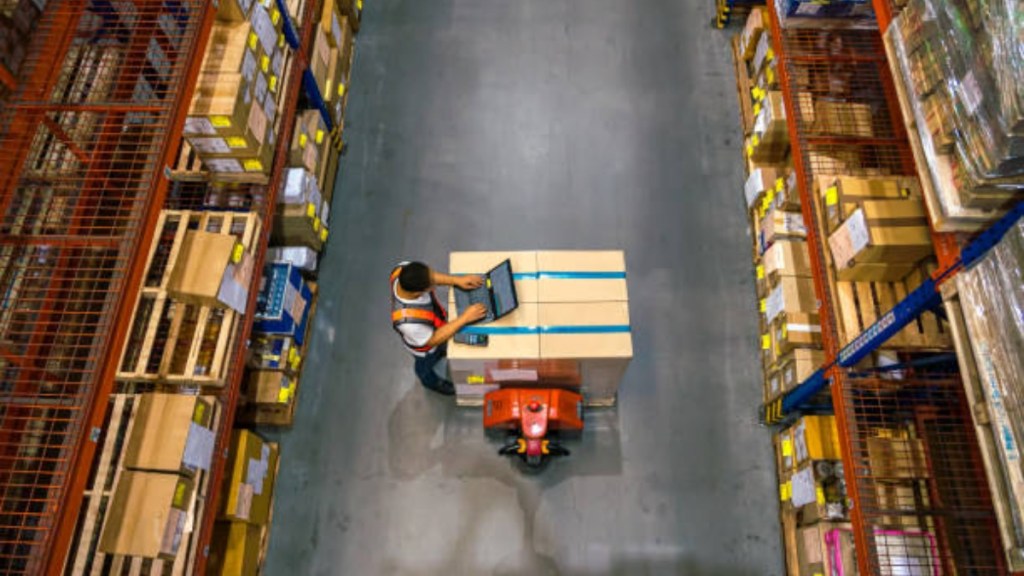– By Nari Katgara
In an increasingly interconnected world, the Indian diaspora has grown into a significant global community, with over 35 million Indians living abroad. This community has a profound cultural connection to India that comes alive, especially during festive occasions. Festivals like Diwali, Holi, Eid, Durga Puja, Lohri, Navratri and Christmas represent nostalgia, family bonding, and spiritual renewal, creating a strong demand for logistics solutions to deliver a sense of home to Indians worldwide.
The logistics industry is pivotal in connecting the diaspora to their roots, adapting to the demands of cross-border festive deliveries. As a multicultural, mobile population grows, global logistics have seen shifts tailored to seasonal spikes and cultural needs, especially as Indian-born individuals abroad rose from 18 million in 2020 to over 35 million by 2024 as per a UN report. The rising cross-border B2C e-commerce market, projected to grow at a CAGR of 23.1% from 2024-2032, reflects the demand for Indian-origin products, particularly during festive seasons.
According to IATA, the global air cargo industry faces seasonal peaks, such as those around Diwali and Christmas, which can drive up demand by 30-40%, especially as consumer shopping during these periods continues to increase internationally. There is an increasing reliance on international shipping among diaspora that uses e-commerce platforms to purchase Indian origin products – from ethnic wear to spices. As cross-border e-commerce evolves, advances in technology and international trade agreements are also improving the ease and affordability of transactions, addressing challenges like customs delays and compliance.
Logistics providers must manage this surge in volume while dealing with strict timelines as many Indian festivals fall on fixed dates in the lunar calendar, making timing critical. The idea of preserving the cultural essence of the celebration through the products sourced from India create unique challenges for logistics providers.
Key logistics trends supporting cross-border festive deliveries
E-commerce integration and last-mile delivery: The growing role of e-commerce platforms in festive deliveries cannot be overstated. With India’s e-commerce market set to reach $200 billion by 2026, global logistics companies have teamed up with e-commerce leaders to streamline cross-border festive deliveries. Last-mile solutions in diaspora-heavy regions like the UAE, UK, US, and Canada have become increasingly sophisticated and efficient, ensuring timely, quality deliveries.
Cold chain logistics for perishable goods: Perishable items integral to festivals like sweets and fruits ought to be handled differently. Companies are investing heavily in temperature-controlled storage and transportation systems to safeguard these items, maintaining quality across distances.
Technology-driven solutions: The integration of artificial intelligence (AI), blockchain, and the Internet of Things (IoT) is revolutionizing the tracking, management, and delivery of festive goods. AI-powered algorithms are increasingly being used to optimize delivery routes, predict delays, and improve warehouse efficiency. Meanwhile, blockchain helps ensure transparency and security in transactions, particularly for high-value goods sent during festive seasons.
As this season brings a massive surge in shipping and delivery volumes, logistics companies are scaling their workforces to meet the heightened demand. The industry is actively hiring temporary and part-time workers, especially in the lead-up to major sales events. With order volumes peaking during these periods, logistics companies are implementing rapid training programs to ensure that workers are proficient in sorting, packaging, and using advanced inventory management tools. Companies are also offering competitive pay, performance bonuses, and flexible shift options to attract and retain talent during these peak seasons.
This approach not only addresses immediate operational needs but also supports workforce stability, allowing logistics providers to effectively manage the surge in demand without sacrificing service quality. However, it also underscores the importance of having a prepared, trained workforce in place to handle the complexities of cross-border festive deliveries, which can be particularly challenging when navigating international customs and regulations.
In addition to workforce scaling, the global logistics industry is adapting to ongoing disruptions in global supply chains. Political unrest or geopolitical for instance can lead to delays and disruptions in imports, significantly impacting industries reliant on international shipping.
Despite challenges, the global logistics industry is increasingly adept at meeting the needs of a diverse diaspora. By bridging distances, logistics companies play a vital role in helping Indians worldwide connect to their heritage and celebrations, delivering comfort and joy across borders.
(Nari Katgara is Director at Jeena Global Pty Ltd.)
(Disclaimer: Views expressed are personal and do not reflect the official position or policy of Financial Express Online. Reproducing this content without permission is prohibited.)

